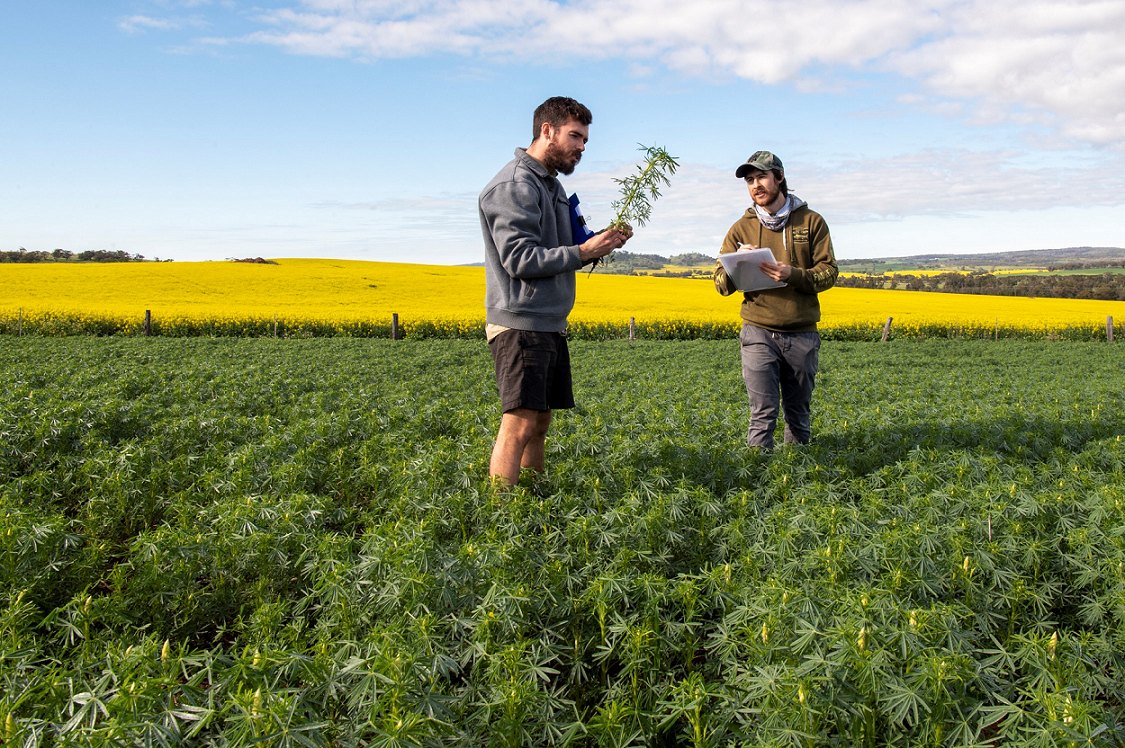
New research findings have demonstrated that the canola industry must seek alternatives to insecticides for control of the green peach aphid and the damaging virus it spreads.
A Department of Primary Industries and Regional Development (DPIRD) research project in collaboration with Cesar Australia found insecticide seed treatment control was compromised by low-level resistance in the green peach aphid with concerning implications for turnip yellows virus (TuYV) control.
DPIRD Research Scientist Ben Congdon will present the project’s findings at the GRDC Grains Research Update in Perth.
“In trials run by Cesar Australia, a science-based research organisation in Melbourne, with funding support from the Grains Research and Development Corporation (GRDC), low-level resistance in green peach aphids were found to reduce the effectiveness of neonicotinoid-based seed treatments on canola,” Dr Congdon said.
“This was surprising given that the resistance mechanism is considered low-level in laboratory bioassays and was thought to have little practical impact.”
Dr Congdon said incomplete aphid control by seed treatments was unlikely to provide effective virus control.
“Because the green peach aphid is such a potent TuYV vector, even small populations of aphids can cause significant TuYV spread, therefore management strategies focussed on controlling the aphid vector must be highly effective to have an impact on infection levels,” he said.
“Findings from two years of DPIRD trials in the same project indicate that the unrivalled ability of green peach aphid to transmit virus may also limit the usefulness of foliar insecticides for TuYV control.
“In two field trials at Northam and Muresk, a pre-emptive application of insecticide in large plots of canola limited aphid populations but was generally insufficient to significantly suppress TuYV spread.”
Dr Congdon said that further research using different spray regimes that considered real-world conditions was required to fully determine the effectiveness of foliar insecticides.
“The differences in disease pressure in natural conditions at the paddock scale compared with the spatial limits on plot sizes and contrived disease pressure of a field trial could be important,” he said.
“An application that reduces the speed at which green peach aphid colonises the crop could have a greater impact on virus spread in a 50ha paddock compared to an 80m2 plot.”
Dr Congdon said in more promising signs, partial resistance to TuYV found in the canola variety ATR Stingray was effective at suppressing TuYV spread.
“The field trial results demonstrate that TuYV resistance in canola has the potential to be an effective and less management-intensive alternative that could reduce the on-farm economic and environmental burden of insecticides,” he said.
“Continued evolution of insecticide resistance in green peach aphids, coupled with uncertainties around regulation of key insecticides, particularly neonicotinoids, indicates that new control options are required.”
Dr Congdon suggested the next research step in developing commercially available resistant varieties was to test known sources of resistance from Australia and overseas against a broader genetic spectrum of TuYV strains.
This work was undertaken in conjunction with Associate Professor Paul Umina, Lisa Kirkland and researchers from Cesar Australia.
The 2023 GRDC Grains Research Update will be held at Crown Perth on February 27 and 28.
For more information or to register visit the GRDC website; contact GIWA on 08 6262 2128 or researchupdates@giwa.org.au
Picture caption: DPIRD research scientist Ben Congdon and technical officer Jono Baulch examine a canola crop as part of research into turnip yellows virus control.


